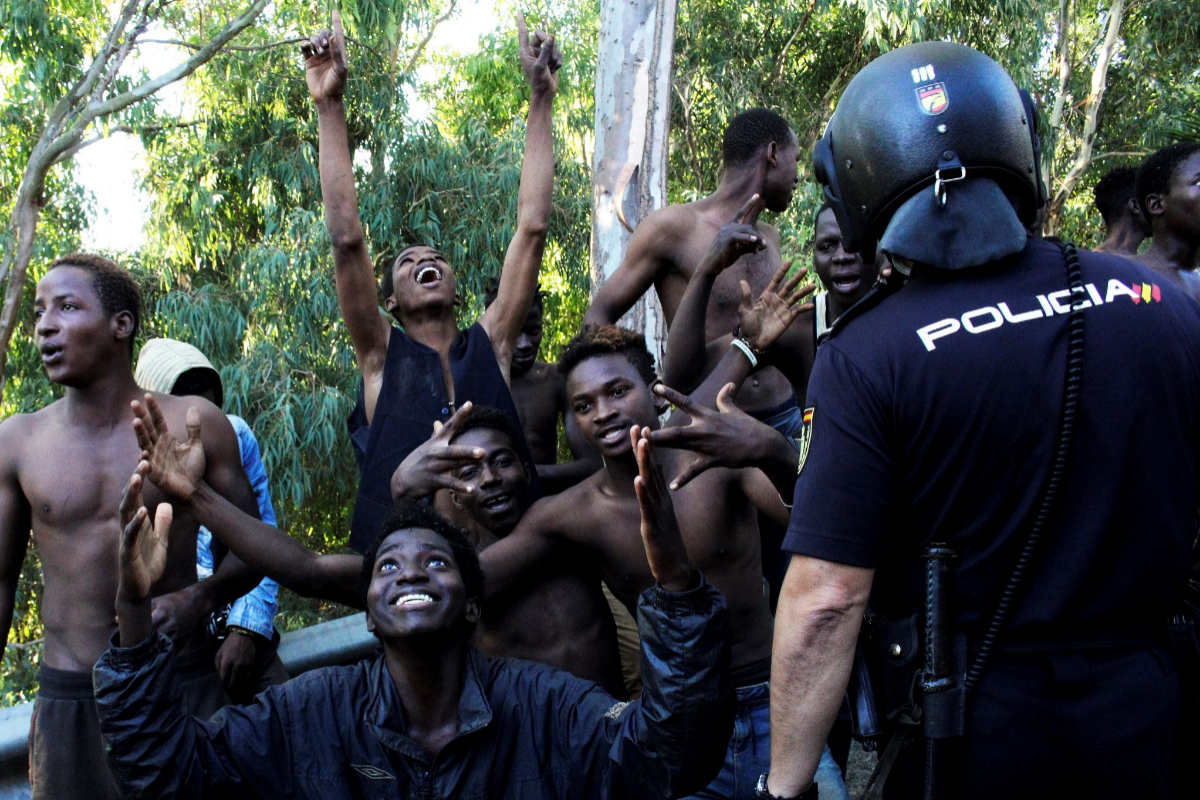- The ruling: Strasbourg endorses "hot returns" in Ceuta and Melilla and revokes the initial condemnation of Spain
- Newspaper library: Strasbourg condemns Spain for two "hot returns" in Melilla
- Immigration: The Government removes the third border fence of Melilla
Varapalo of the Spanish Advocacy to the European ruling that guarantees hot returns. "The ruling violates the rights of the Refugee Convention and allows the summary expulsion of immigrants as a result of their own conduct. The right to request international protection is lost. It shakes the foundations of the principle of non-refoulement." And message to the Spanish Government: "That border management be carried out with legal guarantees".
The quotes are from the General Council of Advocacy, the body that brings together and represents all professional associations in Spain. Those responsible for the council have had 24 hours to study the 122 pages of the ruling of the European Court of Human Rights ( ECHR ) which, on Thursday, gave legal coverage to express expulsions at the border.
The Council of Advocacy maintains that the sentence "collides" with the Geneva Convention for Refugees of 1951. And notes that the ruling of the 13 magistrates of Strasbourg marks "a new legal conception of hot returns that clashes with International Human Rights Law and the procedural guarantees that are due to any person. "
The Council states that allowing the "summary expulsion" of immigrants due to their own behavior by not using official entry procedures, as the judgment says, "means that people who access a country through places not authorized to cross the border go to lose the right to request international protection. "
And that right can only be exercised in a position enabled for it, "an idea that shakes the foundations of the principle of non-refoulement, cornerstone of the Geneva Convention."
Without "possibility of accessing another procedure"
The Spanish Advocacy text ensures that by accepting express return , migrants "lose the possibility of accessing any other procedure before the authorities that have exclusive control over them." Specifically, and for example, individually assess your situation, such as the fact that it was a minor.
"The ECHR seems not to have asked the Consulate of Spain in Nador , which is cited in the ruling as a possible official post to request asylum and that 'is only 13.5 km from Beni Enzar's post ', yes, indeed , it is possible that migrants camped on Mount Gurugú who believe they are in a position to request asylum can do so at their offices. "
It is a new model of understanding hot returns. But it is a conception that "clashes with International Human Rights Law and the procedural guarantees that are owed to anyone regardless of their immigration status or the way they enter the territory."
The General Council of the Advocacy: "It enters into collision with the recent decision of the Committee on the Rights of the Child in a case similar to that of ND and NT [the young people on which the ECHR has sentenced], but in which who was the object of a summary expulsion was a minor, since the obligations of protection and procedures are applied even with respect to the minors that are subject to the jurisdiction of the State when trying to penetrate the national territory ".
Negative consequences
Do not forget the higher body of the Advocacy to send a message to the Executive of Pedro Sánchez. "The General Council of Advocacy does not doubt that the Spanish Government will make every effort at its disposal so that border management is carried out from the recognition of the legal guarantees that correspond to these people, often in a situation of great vulnerability ".
And he interprets that the ECHR ruling confirms "a tendency in Europe on the approach of migratory movements that is becoming increasingly strange due to the disproportion between the legal mechanisms of emigration to their States and the really existing volume of migration."
"This disproportion feeds the irregular flows against which this ruling aims to shield European borders, creating a perverse paradox."
According to the criteria of The Trust Project
Know more- European Court of Human Rights
- Europe
- Spain
- World
- immigration
- Morocco
- Ceuta
- Melilla
- Justice
Immigration Arrivals of boats to the Canary Islands are multiplied by 18 at the beginning of 2020
Immigration The Government removes the third border fence of Melilla
Justice Strasbourg endorses "hot returns" in Ceuta and Melilla and revokes the initial condemnation of Spain

